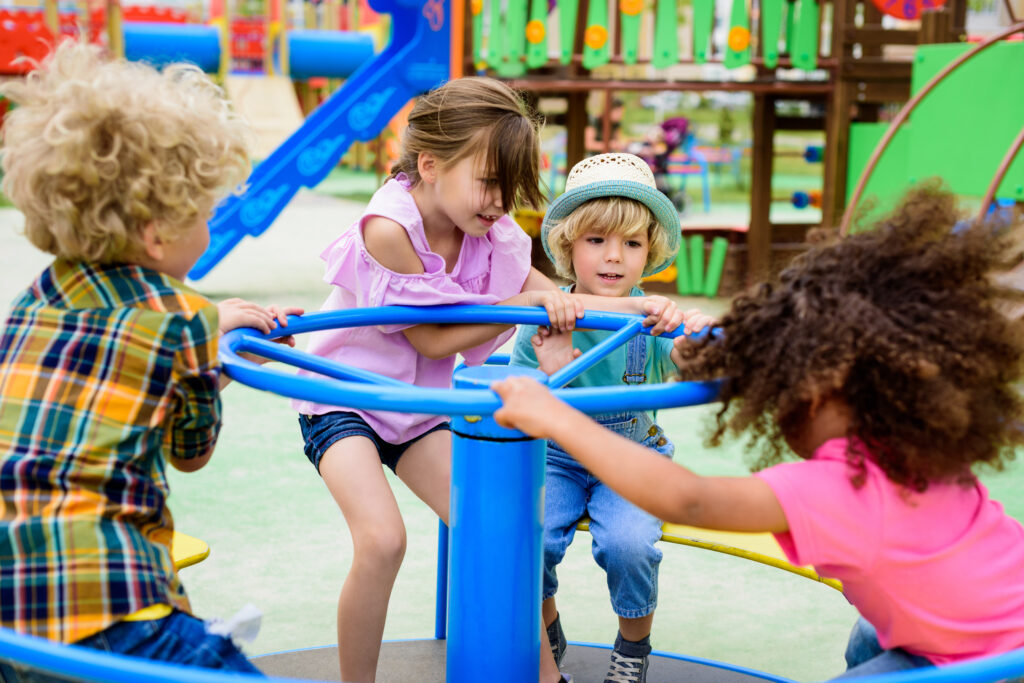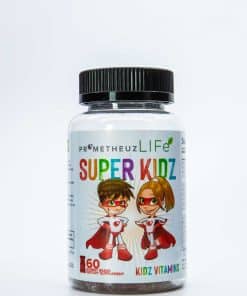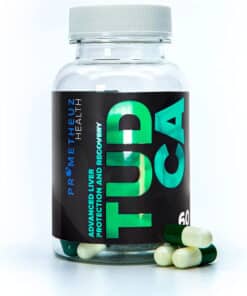Kids
GETTING KIDS ACTIVE: EVERYTHING YOU SHOULD KNOW
In the 21st century people are becoming less and less active as most labour and physical activities get simplified through newer technology and methods. Unfortunately this applies to children as well, as we see an increase in inactive children and a decrease in sports participation.
Science has proven that regular exercise improves physical and psychological well being, yet kids are not encouraged enough to get active! Covid -19 has amplified this problem in a global context as social distancing has forced most sport and physical activities to come to a screeching halt.
We cannot deny that most forms of sport offer an easy alternative to not only getting kids active, but also teaching them valuable and fundamental life skills. Kids will start to be active during the toddler stage of their life as the activity of play is inadvertently done as a way of exploring the surroundings. It is only once children grow slightly older that play evolves into a more structured form when at school level.
Why should kids be active?
Research has proven numerous physical and psychological benefits to a child’s development when staying active through sport or regular exercise. Listing reasons why kids should be active can be a whole article in itself, but let’s have a look at some of the most important pros to help you see the potential in getting your children active.
When kids are active at a young age, sport and exercise tend to help improve motor coordination and enhance the evolution of motor performance skills that will transfer to adulthood. Children who are active also report less symptoms of mental health issues such as anxiety and depression. Socially, sport and exercise aids in development of essential interpersonal skills especially relevant to those participating in team sports and this can translate to greater self esteem and better self image.
Participating in regular physical exercise makes children more resilient to injuries as well as preventing or combating the development of numerous chronic diseases (e.g. obesity, hypertension, heart disease and diabetes). Physical activity also promotes the development of strong and healthy bones, ligaments, muscles and joints.
When will my child be ready to take on sports?
The American Academy for Pediatrics makes three suggestions a child should follow before participating in sports. Firstly, participation in sport should be grouped properly according to physical maturity, weight, height and physical abilities. Secondly a child should be physically evaluated as thoroughly as possible before he or she participates in sport.
Lastly the coach should have adequate knowledge of a child’s growth and development, the prevention of injuries and the application of scientific training methods. If you feel all the correct procedures are followed to ensure your child is in a safe and professional environment, you can encourage participation. However parents tend to pressure kids into participating in a sporting code that they themselves are interested in, causing a child to specialize into one sporting code at a very early age. Be careful as this could hinder future participation and encourage fall out.
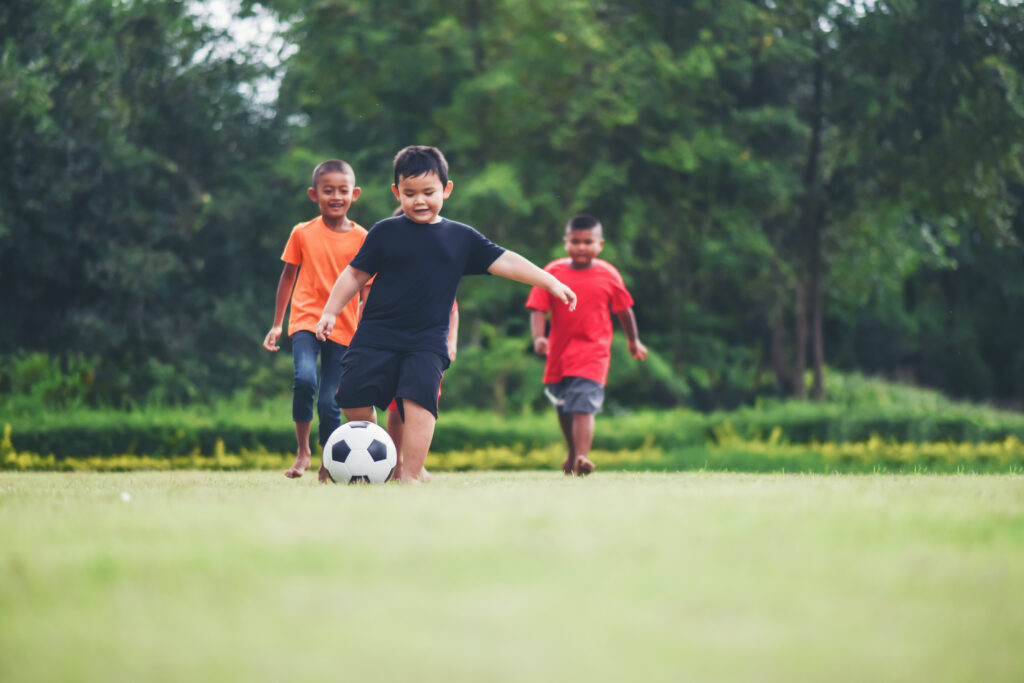
When should a child specialize?
In literature many examples exist of world class athletes with very average achievements during youth level as well as not training hard at all. According to Hemerg very few world class athletes actually specialized before the age of 16 – 18 years. Most of these athletes also agree that the decision to specialize was made by themselves without the influence and pressure of parents and coaches.
However we do find athletes that were outstanding in their youth and then continued to become world class athletes as seniors, for example Mary Deckler- Stanley. These examples seem to be mostly in the minority. A study done on Swiss tennis players supported the above mentioned, namely that the most successful players only started specializing at a later age as well as not coming from a family of tennis players. No participation pressure was applied by parents!
The former keeps underlining the fact that genetics play a vital role and that coaching and amount of exercise cannot determine your athletic abilities. But one needs to understand that this is not the absolute rule! Kids that specialize later might as well have started earlier and still shown good results under the correct circumstances.
Noakes declares the above mentioned as follows: A top athlete has a sport life of about 10 years. This means if a child starts to specialize at the age of 12, it would be improbable that the same child would still be competitive at 22 years of age. According to Noakes an athlete that started later on an intensive training regime will perform better as they have fully physically matured. This will enable the athlete to train harder during his or her competitive career. The child can as such optimally utilize his physical and spiritual maturity that usually occurs between the ages of 25 to 35 years.
Reasons for success
Billy-Jean King and her brother (a professional baseball player) were both professional athletes. Her answer when being asked whether or not she was satisfied with her parents and the abilities that she received from them was: “My parents always supported us and never asked us if we had won. They always just asked if we gave a 100% and if we were satisfied with our attempt?”
A parent should never have to ask a child if he or she has lost. “Just look at his shoulders”. For King the most important lesson she received from her parents was the support and non pressure attitude. It is vital that you support a child correctly!
When and where can my child start?
The simple answer is as soon as possible! Children should be exercising on a daily basis not only through sport but by exercising with the correct methods to ensure the body can perform adequately on the sports field, arena or life in general. Unfortunately kids today tend to be less active and as such suffer the consequences of not building a strong foundation! Core strength is the development of all the muscles around the torso that help to align and stabilize all the distal segments of the body. Poor core strength will lead to bad posture that can then in turn affect gross motor and fine motor skills. Building up your child’s core strength is building up the foundation of a healthy, happy and strong child.
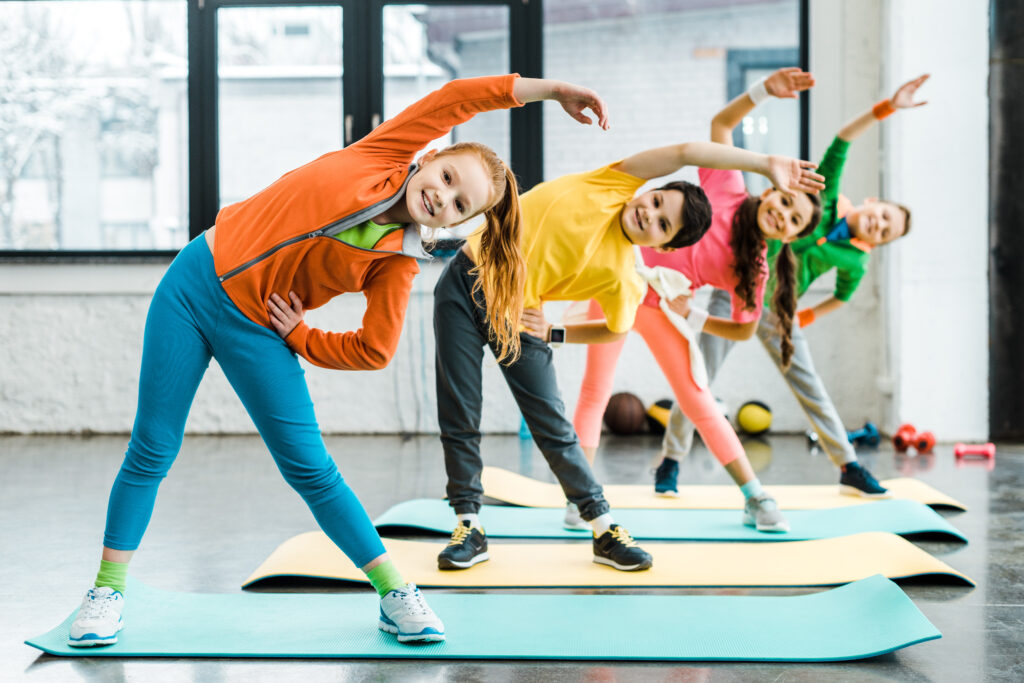
What core exercises should my child be doing?
There are numerous ways to help build up the core strength of your child. When exercising with children, the same principles apply as the above mentioned with regards to sport. Be careful to not pressure a child into doing exercise that will lead to an unmotivated and frustrated child. In other words try and keep the exercises as close as possible to play, making it fun and creative.
A simple example will be the wheelbarrow exercise that truly tests core strength but can also function as a fun activity and challenge for a young developing child. Core strength will be developed when climbing or crawling so get your kids outside using jungle gyms! If you enstil enough fun physical activities into a toddler they will naturally gravitate towards sports and a more challenging environment.
When starting out core strengthening activities or exercises, manage the load by not overloading the child with numerous different exercises. Start with few at a time! Find activities that your child likes to engage in and as time progresses you should see your child start to develop more self confidence and endurance.
Getting a child active at a young age is vital to instil a healthy lifestyle that can carry over into a sustainable adulthood. So try and manage your child to find his own journey through exercise and sport and I promise you will be setting up your child for a successful, happy and healthy future.
“Children are our greatest treasure. They are our future.” – Nelson Mandela


